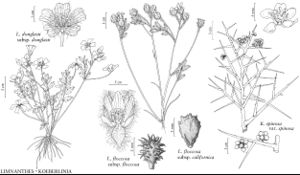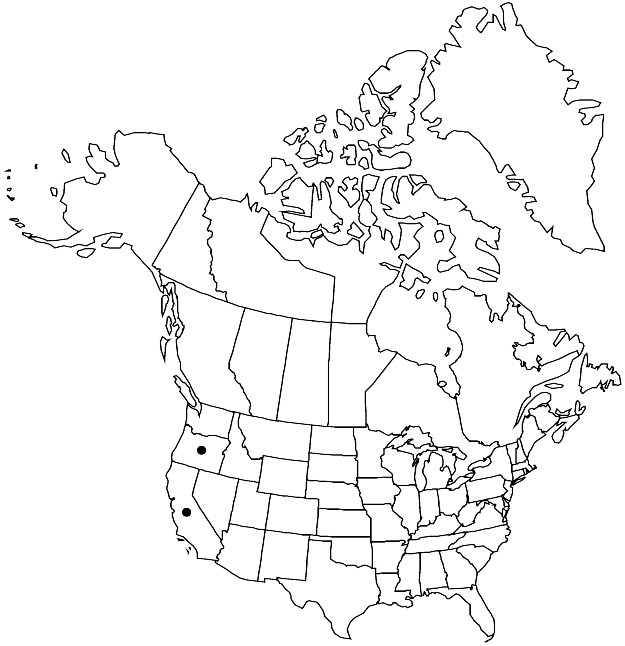familyLimnanthaceae
genusLimnanthes
sectionLimnanthes sect. Inflexae
speciesLimnanthes floccosa
subspeciesLimnanthes floccosa subsp. floccosa
Difference between revisions of "Limnanthes floccosa subsp. floccosa"
FNA>Volume Importer |
imported>Volume Importer |
||
| Line 42: | Line 42: | ||
|publication year= | |publication year= | ||
|special status= | |special status= | ||
| − | |source xml=https:// | + | |source xml=https://bibilujan@bitbucket.org/aafc-mbb/fna-data-curation.git/src/bb6b7e3a7de7d3b7888a1ad48c7fd8f5c722d8d6/coarse_grained_fna_xml/V7/V7_228.xml |
|genus=Limnanthes | |genus=Limnanthes | ||
|section=Limnanthes sect. Inflexae | |section=Limnanthes sect. Inflexae | ||
Revision as of 23:54, 27 May 2020
Herbage densely hairy. Stems erect to ascending. Flowers bell- to urn-shaped; sepals accrescent, ovate, 4–9 mm, abaxially and adaxially densely villous; petals obovate, 4.5–8.5 mm, apex rounded (without marginal hairs basally); filaments 2–4.5 mm; anthers 0.4–1 mm, usually dehiscing introrsely; style 1.5–3 mm. Nutlets 1–3, tubercles (as long as wide) awl-shaped.
Phenology: Flowering Mar–May.
Habitat: Moist meadows, vernal pools
Elevation: 0-600 m
Discussion
The distribution of subsp. floccosa overlaps those of all the other subspecies. The densely hairy leaves and sepals distinguish it from the glabrous or sparsely hairy subspp. bellingeriana, grandiflora, and pumila. Nutlets with relatively long and narrow tubercles rather than relatively short, conic ones separate subsp. floccosa from subsp. californica.
Selected References
None.
Lower Taxa
None.

